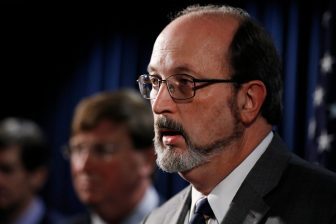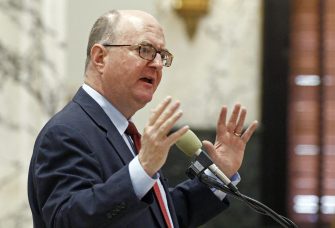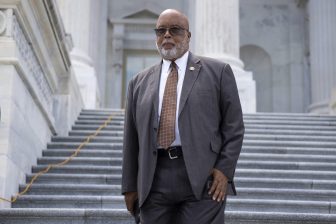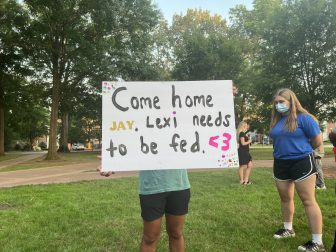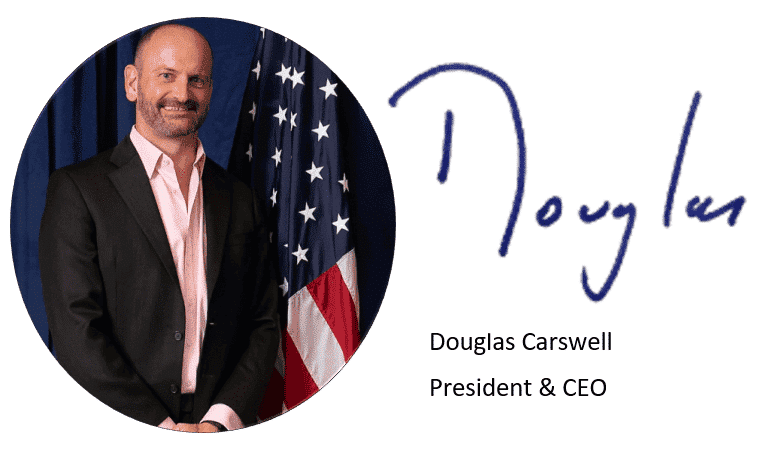
Late in the 2021 session, legislative leaders set a revenue estimate of $5.93 billion. That estimate represented the amount of revenue the state was expected to collect in the upcoming fiscal year and the amount anticipated to be available to fund the budget.
That fiscal year ended on June 30, and the state in reality — based on early numbers —collected $7.38 billion or about $1.46 billion more than the estimate set way back at the end of the legislative session in April 2021. In other words, lawmakers budgeted based on expected revenue of $5.94 billion, but the state collected $7.38 billion instead, resulting in the surplus.
According to data compiled by the staff of the Legislative Budget Committee, revenue collections for the fiscal year that began on July 1, 2021, and ended on June 30 increased 9.5% year over year. That spike in revenue collections comes on top of an increase of a record-breaking 15.9% for the prior fiscal year. It is important to note that in most fiscal years growth in revenue collections is 3% or less.
In terms of state revenue collections, these are truly historic times. The only time in recent memory when the state experienced similar growth was in the 1990s with the start of casino gambling and all the construction related to the new industry and in the 2000s in the aftermath of Hurricane Katrina and the construction that ensued after the Gulf Coast was pummeled. The above average growth for the 1990s lasted for much of the decade while the growth after Katrina was more short-lived, lasting only a couple of years.
Time will tell how long the current revenue growth spurt lasts, but the past two-year period is unprecedented even when compared to what occurred during the casino boon and what happened after Katrina.
During the past fiscal year, sales tax revenue grew 13.8% or $309.3 million while income tax revenue inceased $273.4 million or 12.3%.
In other categories for the just completed fiscal year:
- Oil and gas severance taxes grew $15.5 million or 85%.
- Use tax collections increased $20.2 million or 5%.
- Casino tax revenue grew $15.4 million or 10%.
- Corporate tax collections increased $9.4 million or 1.1%.
- Revenue from the tax on cigarettes, beer and liquor decreased $10.9 million or 3.8%
The staff of the Legislative Budget Committee, which tracks state revenue, has long said that the final surplus tally is not known annually until sometime in August when the books are closed on the prior fiscal year. But based on the early numbers, the surplus — somewhere around $1.4 billion — will be the largest recorded at the end of a fiscal year.
The Legislature will most likely decide what to do with those surplus funds during the upcoming legislative session beginning in January. The Legislature entered the 2022 session with about $1.1 billion in surplus funds and spent $956 million of those funds on projects and on specific needs for state agencies, leaving about $150 million in what is known as the capital expense fund.
The Legislature opted to spend the funds on literally hundreds of projects, such as building and renovation projects on various governmental properties and on tourism projects. In the past when such gargantuan surpluses did not exist, the Legislature paid for such projects by issuing long-term debt.
After an initial drop in state tax collections in 2020 at the onset of the COVID-19 pandemic, revenue soared and has continued to soar. Threats of a national recession have not slowed Mississippi’s revenue collections.
Mississippi is not unique. Federal stimulus funds provided to deal with the coronavirus have helped spur tax collections in nearly every state. In addition, increased wages have provided the states more revenue from the taxes levied on income. And inflation also has provided states more revenue — especially for states more reliant on the sales tax such as Mississippi.
After all, a 7% sales tax on groceries now generates more revenue for the state since groceries cost more thanks to inflation. The same can be said for car sales and for just about every other retail item impacted by inflation.
In the 2021 session, legislators did not consider the impact of inflation when budgeting. Most agencies received small increases in funding or no increase at all other than for specified purposes. But in reality, gas and various other items that schools and state agencies must purchase have increased in cost thanks to inflation. If the Legislature does not provide funds for those increased costs during the 2023 session, many schools and other state agencies could have difficulty making ends meet.
Legislators have no excuse not to fund those inflationary needs. No doubt, the Legislature will have the surplus funds needed to do so.
READ MORE: Many states used surpluses to give taxpayers a rebate. Not Mississippi.
The post Mississippi in midst of historic times in terms of available state revenue appeared first on Mississippi Today.



